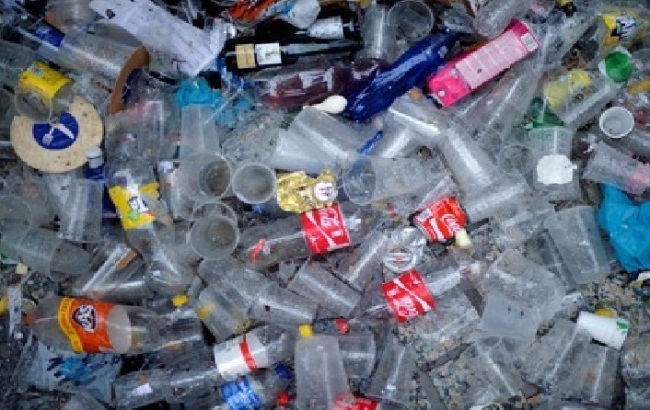Seoul Metropolitan Government on Tuesday announced a set of measures to cut the use of plastic by 50 percent by 2022, including a plan to ban plastic use at all city organizations.
The announcement came in response to a massive plastic waste crisis in the country, and follows China’s ban on plastic waste imports in January. Previously, China had imported about half of the world’s waste, including that from South Korea.
Starting next year, people will be banned from bringing plastic cups into the City Hall building.
 |
(Yonhap) |
Businesses, including hotels and movie theaters, will be encouraged to refrain from providing disposable plastic products, including cups, bags and straws.
The same will apply to parks, outdoor wedding venues, night markets and stadiums.
According to the Seoul Metropolitan Government, the city’s funeral houses, often attached to large hospitals, have among the highest plastic consumption as plastic plates, plastic cups and disposable chopsticks are used to serve food and drinks. The tables are also commonly covered with disposable plastic tablecloths.
To tackle the situation, the city government is designating two funeral houses in the city -- attached to city hospitals the SMG-SNU Boramae Medical Center and Seoul Medical Center -- as Seoul’s “plastic-free” funeral homes.
The plan is to make all funeral houses attached to city-run hospitals plastic-free by the 2020, and to apply the same rules to all funeral homes in the city by the 2022.
In May, the Ministry of Environment also released a set of measures to reduce plastic waste in the country, including a proposal to ban all supermarkets and grocery stores from using plastic bags starting as early as October.
In August, the central government banned the use of plastic cups in all cafes in the country, including major franchises such as Starbucks, Ediya Coffee, Angel-in-us Coffee and A Twosome Place.
South Korea remains one of the biggest consumers of disposable products worldwide. According to a 2016 government report, the country accounted for 98.2 kilograms of plastic products per person, ranking it top in the world.
Statistics show that as of 2015, each Korean person used 420 plastic bags every year, while a single person in Finland used four, and each German used 70.
(
dyc@heraldcorp.com)








![[Today’s K-pop] Blackpink’s Jennie, Lisa invited to Coachella as solo acts](http://res.heraldm.com/phpwas/restmb_idxmake.php?idx=644&simg=/content/image/2024/11/21/20241121050099_0.jpg)